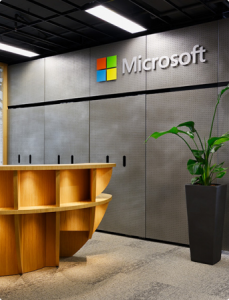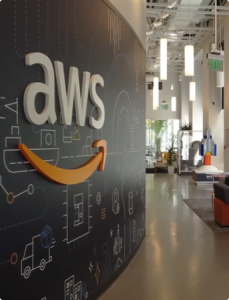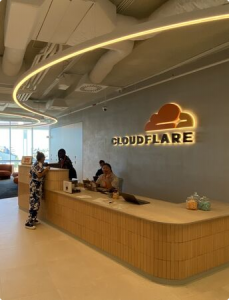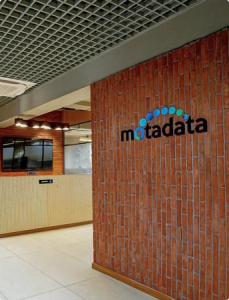Microsoft Cloud is redefining how retailers connect experiences, insights, and innovation
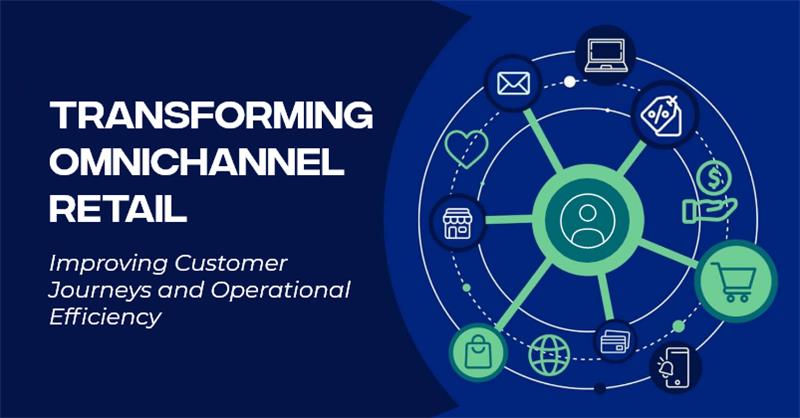
From digital storefronts to supply chain analytics, retail today operates across a fast-moving, connected ecosystem. Customers expect personalization, instant fulfilment, and unified engagement both online and offline.
But here’s the challenge:
How do retailers deliver seamless experiences across all touchpoints while optimizing operations and protecting margins?
That’s where Microsoft Cloud transforms the game.
Microsoft Cloud for Retail is helping enterprises bridge the gap between physical and digital worlds, turning every transaction into an insight, and every interaction into loyalty.
Why Microsoft Cloud is the Foundation of Modern Retail
| Microsoft Cloud Capability | Retail Impact |
| Microsoft Cloud for Retail | Unifies data across channels, empowering 360° customer insights |
| Dynamics 365 Commerce | Streamlines omnichannel operations and inventory |
| Azure AI & Machine Learning | Predicts trends, personalizes offers, and automates demand forecasting |
| Power BI + Fabric | Turns siloed retail data into visual, actionable intelligence |
| Microsoft Security & Compliance | Safeguards transactions, customer data, and digital identities |
According to Forrester, enterprises using Microsoft Cloud platforms see a 27% improvement in customer experience metrics and 32% faster time-to-market for new digital offerings.
From Transactions to Experiences
Traditional retail platforms manage inventory, payments, and CRM in sync.
Microsoft Cloud connects them all so brands can finally deliver personalized, predictive, and seamless omnichannel journeys.
According to McKinsey, 71 percent of consumers expected companies to deliver personalized interactions, and 76 percent got frustrated when it didn’t happen
With Microsoft Cloud:
- Unified customer profiles merge online and in-store behaviours.
- AI-driven recommendations personalize every digital shelf.
- Power BI dashboards predict buying trends across regions.
- Azure’s machine learning models optimize promotions and pricing dynamically.
This isn’t just operational efficiency—it’s retail reimagined around the customer.
4 Ways Microsoft Cloud Is Transforming Retail Operations
1. Unified Commerce Platforms
With Dynamics 365 Commerce, retailers can integrate inventory, payments, promotions, and logistics in real time.
The result?
Fewer stockouts, faster delivery, and a consistent experience across channels.
According to Gartner, unified commerce adoption reduces order processing errors by up to 35% and increases customer retention by 20%.
2. AI-Powered Customer Insights
Using Azure Synapse Analytics and Microsoft Fabric, brands can unify customer data and uncover actionable insights for personalized engagement and loyalty.
Microsoft reports that retailers using Fabric for unified data analysis saw a 50% reduction in campaign turnaround times.
3. Smarter Supply Chain and Fulfilment
Azure AI and IoT help retailers forecast demand, optimize supply routes, and ensure inventory accuracy. Predictive analytics enables just-in-time replenishment—saving costs and minimizing waste.
4. Empowered Frontline and Back-Office Teams
With Microsoft Teams and Power Platform, retail associates can access real-time updates, customer data, and workflows directly from mobile devices—creating faster response cycles and better in-store experiences.
Claritus’s Approach to Microsoft Cloud for Retail
Through our partnership with Microsoft, Claritus combines decades of deep retail domain expertise with proven cloud maturity and delivery excellence. With a security-first approach that ensures compliance, transparency, and data trust, we provide end-to-end execution—from architecture to analytics and optimization.
Together, Claritus and Microsoft turn cloud adoption into measurable business impact, empowering retailers to innovate with agility, enhance customer experiences, and scale with confidence.
Our Retail Cloud Enablement Includes:
- Omnichannel data integration using Azure, Dynamics 365, and Fabric
- AI-driven personalization and recommendation engines
- Power BI dashboards for real-time customer and sales insights
- Cloud migration and optimization frameworks for cost efficiency
- Security-first implementation aligned with Microsoft compliance models




